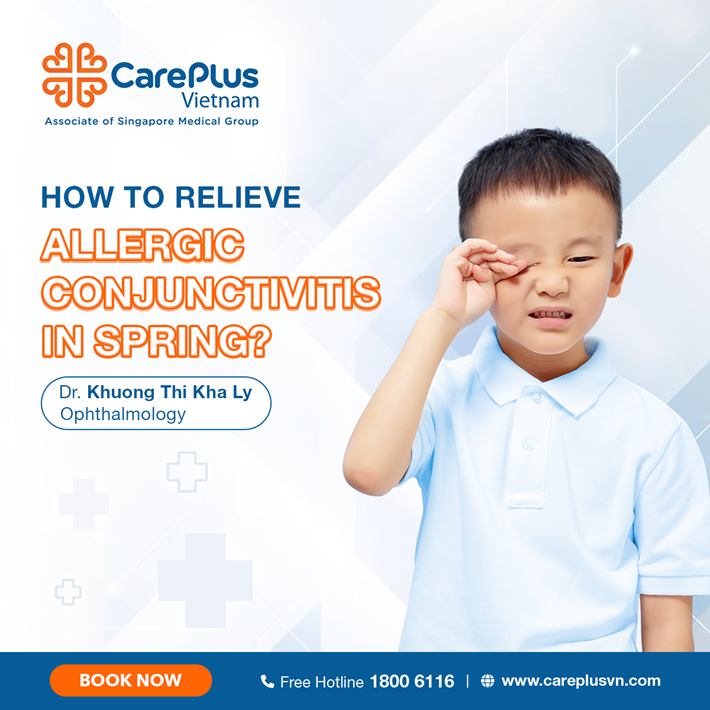SPRING CONJUNCTIVITIS AND PREVENTION METHODS
Spring conjunctivitis is an eye allergy disease, often occurring during the spring and summer months, due to an increase in allergens such as pollen, pet dander, dust... and is more common in males

3/5/2024 8:51:50 AM
The article is professionally advised by Dr. Khuong Thi Kha Ly - Head of the Ophthalmology Department at the CarePlus International Clinics
Spring conjunctivitis, also known as vernal conjunctivitis, is an eye allergy disease, often occurring during the spring and summer months, due to an increase in allergens such as pollen, pet dander, dust... It is more common in males than females.
- The primary mechanism behind the disease is the body's reaction to allergens - substances that trigger an immune response. When these allergens enter the body, individuals with allergies produce antibodies, leading to hypersensitive reactions and resulting in pathological symptoms in one or more organs.
As a result, individuals with spring conjunctivitis often have other allergic conditions such as allergic bronchitis, allergic rhinosinusitis, food allergies, and atopic dermatitis.
- Additionally, weather changes and temperature fluctuations during the transition from spring to summer also influence spring conjunctivitis.
- Studies also suggest a correlation between this condition and hormonal changes as well as genetic factors.
What are the common symptoms of spring conjunctivitis?
- Itching eyes are the most common symptom, often occurring at specific times of the day (such as in the morning upon waking up and exposure to sunlight, or in the evening). Rubbing the eyes exacerbates the itching sensation.
- Frequent tearing
- Redness in both eyes, feeling of heat and irritation in the eyes
- Sensitivity to light (especially excessively bright light), blurred vision
- Sensation of foreign body in the eyes, eye discomfort
How can we prevent the disease?
Spring conjunctivitis cannot be completely avoided but can be prevented by the following methods:
- Individuals with allergic predispositions need to minimize exposure to allergens: pollen, pet dander, chemicals, etc.
- Maintain good personal hygiene, avoid rubbing eyes with hands
- Cleanse the eyes with a physiological saline solution
- Wear protective glasses to limit eye contact with dust and other allergic agents
When should you see a doctor?
Spring conjunctivitis tends to recur and significantly affects daily activities and quality of life.
When you notice signs of disease onset such as eye discomfort, redness, tearing, and especially when symptoms worsen, you should schedule an early examination for timely treatment, thereby improving symptoms and preventing complications affecting vision.